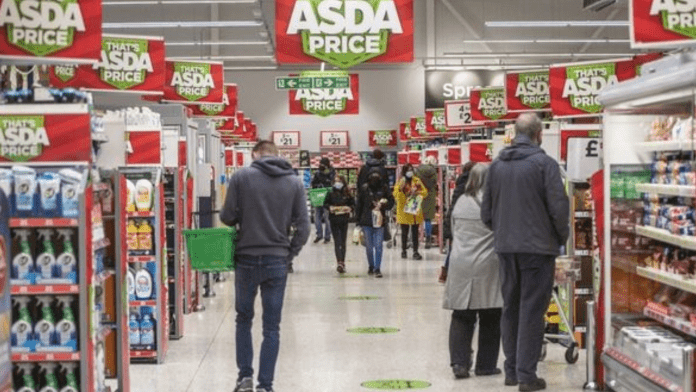Asda, the third largest supermarket group in Britain, has made an announcement stating that it will freeze the prices of over 500 products until the end of August. This decision aligns with the emerging signs indicating a potential easing and reversal of the recent surge in food inflation in the coming months.
Asda, currently positioned behind market leader Tesco and second-place Sainsbury’s, has introduced a price freeze on a wide array of products. This initiative covers both well-known branded items like Kellogg’s cornflakes and Premier Foods’ Oxo beef stock cubes, as well as Asda’s own brand products including salads, burgers, and ice cream.
In response to the significant price increases observed in certain items like milk, butter, bread, pasta, and vegetable oil, grocers have taken measures to lower their prices. Asda’s recent action aligns with this trend, as they have joined other retailers in reducing the prices of these particular products.
Waitrose, the high-end supermarket, made a significant move on Monday by lowering the prices of over 200 products in its range.
Prime Minister Rishi Sunak had set a target to halve the overall inflation by 2023. However, this objective has faced setbacks due to the persistent and stubbornly high inflation, specifically in the food sector.
The latest official data revealed that consumer price inflation in the UK reached 8.7% in April. Moreover, food and drink inflation stood at 19.1%, narrowly below a 46-year high.
According to industry data, grocery inflation showed a slight decrease, reaching 17.2% in May.
Food retailers have indicated their anticipation of overall price increases in 2023; however, they also expect the rate of inflation to decrease gradually throughout the year.
Clive Black, an analyst from Shore Capital, predicts that disinflation will be the primary driving force in 2023, rather than deflation. He highlights the expectation of more manageable commodity prices, yet points out that energy, labor, and packaging costs remain high.
In addition, Clive Black asserts that many observers underestimate the time required for grocers to recover costs, taking into account factors such as contracts, hedges, and the negotiation process.
Recently, the French government successfully obtained a commitment from 75 leading food companies to reduce prices on numerous products.
In the previous month, British finance minister Jeremy Hunt held discussions with food manufacturers to express concerns regarding the sharp increase in food prices. However, no formal proposals for price controls were put forward during these discussions.
The inflationary outlook will gain further clarity with upcoming events such as Tesco’s quarterly trading update on Friday and market researcher Kantar’s latest report, which is set to be released on June 20. These updates will provide valuable insights into the current market conditions and inflation trends.





